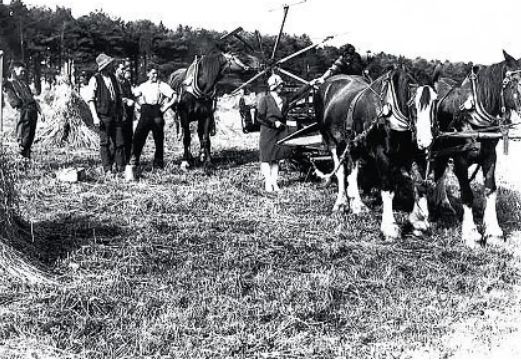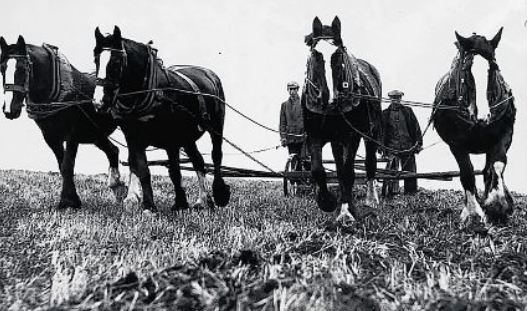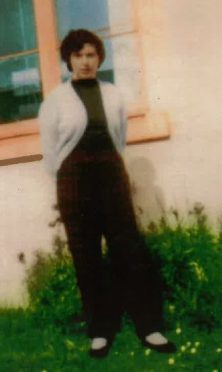George Smith, 81, was brought up in Aberdeenshire. He lived and worked on many farms in the area in his youth. This is the third and final part of a letter he wrote about the places where he lived in his younger days.
We moved again to a farm on the outskirts of Stonehaven, which was called Redcloak. From there we went to Fetteresso school in Stonehaven – it wasn’t too far to walk.
The town dump was quite near our house, so in the evenings my mate and I would go down to it and have a good rake. We used to find all sorts of things, including Army belts and badges.
Our next move from there was only a few miles away. In fact, it was only on the other side of Stonehaven. It was called Glithno and my father was a cattleman there.
In the early days there was no television and the radio used to work off a wet and dry battery. The wet battery had to be charged up at the local garage every few weeks.
I can tell you, it was no easy task trying to pedal a bike and carry a big battery at the same time. Every Saturday and Sunday I had to rise at six in the morning to help my father to feed the cattle in the byre.
At three o’clock, and every day during the school holidays, I had to hash turnips, clean out the forestalls and take heaps of straw from the barn to feed the cattle in the byre.
I didn’t have long left to go in school and it couldn’t be over soon enough for me. I remember one day I didn’t fancy going to school, so I planted my school bag below an upturned tree at the end of the road until the time I should have come home from school.
Then I just collected my bag and went home as usual.
At teatime my father asked how school was. He knew I hadn’t been at school, because he and another couple of men had been repairing the fences there. They found my school bag and decided to just leave it. I better not say what happened next.
There were always plenty of farm jobs to be had in those days. The Press and Journal and the People’s Journal had pages of them.
If there was anything suitable in the papers the men would usually get the bus into Aberdeen on a Saturday afternoon.
There were two farm registers in Aberdeen – Smith’s on Union Street and Cameron’s on King Street. The funny thing about it was they were run by two middle-aged women. If either of them set you up with a job you had to pay the women a fee, but your boss usually paid for you.
Your new boss usually asked how much your wages were so you had to be very quick to add on a bit.
One of our neighbours used to say that my father moved so much his hens didn’t have the time to lay. I didn’t mind as I enjoyed seeing the countryside and it was good fun moving about.
It was now time for me to leave school, and it couldn’t come soon enough. I left school on the Friday and started work on the Monday. My father made sure I had a job. I started work on a small farm a couple of miles up the road from home. There was just the farmer, the elderly housekeeper and myself.
I did a bit of harrowing and rolling. I had a room in the farmhouse and got all of my meals. I was paid one pound ten shillings a week, so I was quite pleased with that.
One Friday morning the farmer asked me to go into the house to see what time it was, as he was going into the market at Stonehaven. When I entered the kitchen I found the housekeeper lying on the floor, so I rushed out to tell the farmer.
He got the doctor and between them they carried her through to my bedroom. The doctor reckoned she must have fainted and hit her head on the old-fashioned fender beside the fire.
I got quite a shock, as I was just a young lad of 14. I didn’t fancy sleeping there any more, so I left the following week. I then got a job as an apprentice mason with a building firm in Stonehaven.
My wages were the same but this time I had to pay my mother one pound a week for board. That only left me with ten shillings, but that could get me into the pictures on a Saturday afternoon and buy an ice cream, pie and chips. So it wasn’t so bad but that was it until the following Saturday.
My father was quite a hard man. He told me once never to leave a job unless I had another one to go to. I’ll always remember those words.
I stuck it out there for a few months and then I got a job on a farm again. The farm was quite near Banchory. I stayed in the bothy and got all of my meals from the farmhouse. I stayed there for quite a while, until I was getting near my time to be called up for my national service.
To get into the regiment I wanted, I had to join up early. I always loved driving, so I asked if I could enlist in the Royal Army Service Corps. I was accepted into that regiment, so I signed on for three years and left the following Tuesday for Farnborough.

Why not share your memories with the YL readers? Contact Natasha on 01224 343382, send her a message at natasha.mckim@ajl.co.uk or write to YL magazine, Lang Stracht, Aberdeen, AB15 6DF
